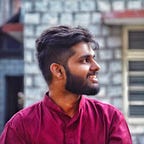To be, or not to be a Dalit in 21st century
Every year on 14th April we celebrate the birth anniversary of Bhim Rao Ambedkar. Most widely known as a dalit leader and the drafter of the constitution of India. Everyone celebrates his identity as a dalit or mahar but very few know Baba Saheb as a great scholar and social reformer. Overtime, he has become the face of untouchables and leads the chariot of their revolution, yearning to uplift them out of the darkness of manual scavenging and yet after thousands of years the ‘ati shudras’ wait for justice that seems to be at the very end of light or to be precise nowhere. How ironic it is, that the man who wrote our constitution failed to write the fate of his own people. Those who are born hindu but not enough to enter the temples. So misfortune that their last name can be used as abuse. Today it is important to understand what the future beholds for Gandhi’s “ children of god” whose destiny lies in suppression and centuries old discrimination. The struggle is to prove their nationalism amid caste discrmination and the call for a hindutva based nation and to decide ‘ To be, or not to be a dalit in 21st century’.
In Hinduism, the society is divided into four varnas and the dalits are excluded from the system. The term Dalit was first used by British and Mahatma Jyoti Rao Phule in 1900’s. Before that, there was no particular word to define this group of people who were subjected to untouchability. Their own religion prohibited them from entering into the place of worship and from drinking the water from the same well.
For centuries they performed the menial task, cleaned dead animals without education under the threat of violence and harassment. The problem arises just 50–60 years back this group of dalits who were considered as slaves in their villages started questioning centuries old discrimination and oppression. Today they defy, they are taking education, they are migrating to urban areas and the biggest atrocity for higher caste people is “these dalits are saying no”. The revolution for right to quality and freedom has led to violence, sexual harassment and coercion against dalits.
During the time of dalit revolution we have seen mass conversion to Buddhism and Christianity and it still continues but this will not be the end of discrimination against dalits. The fight is not to be equal to other castes which was the very reason for this oppression but to be a group of people who respect diversity and bring an end against the abuse of people. Today it is important to be a Dalit and take pride in being what they are and not to be defined by the patriarchy of brahmanism .
With the call of making India a hindutva nation and a tide turning towards saffron dalits should not be defined by the meagre caste they belong to by their occupation. Every minority that is facing the threat to lose their rights should be called dalits. In a country whose foundations lay on the basis of equality nobody should be marked as a second class citizen. It is important to read between the lines and not to be ashamed of being a dalit but take pride in it. To establish a society run by the ideals of dalitization. The fight is not to convey the higher caste people to include untouchables as hindus but the fight is to eradicate caste based division because caste could not have equality. Making a livelihood by collecting human excreta has now become a caste based occupation.
This suppression will not end until the idea of higher caste and lower caste is not taken out from the minds of people. India cannot become a superpower until a huge workforce remains unskilled because of the caste they belong to. Education can only bring transformation and having a school where anyone can go without any restriction and study the same syllabus without any differences will take us ahead. The quest to be superior is not the idea of equality and dalits will not be equal unless caste is eradicated.
